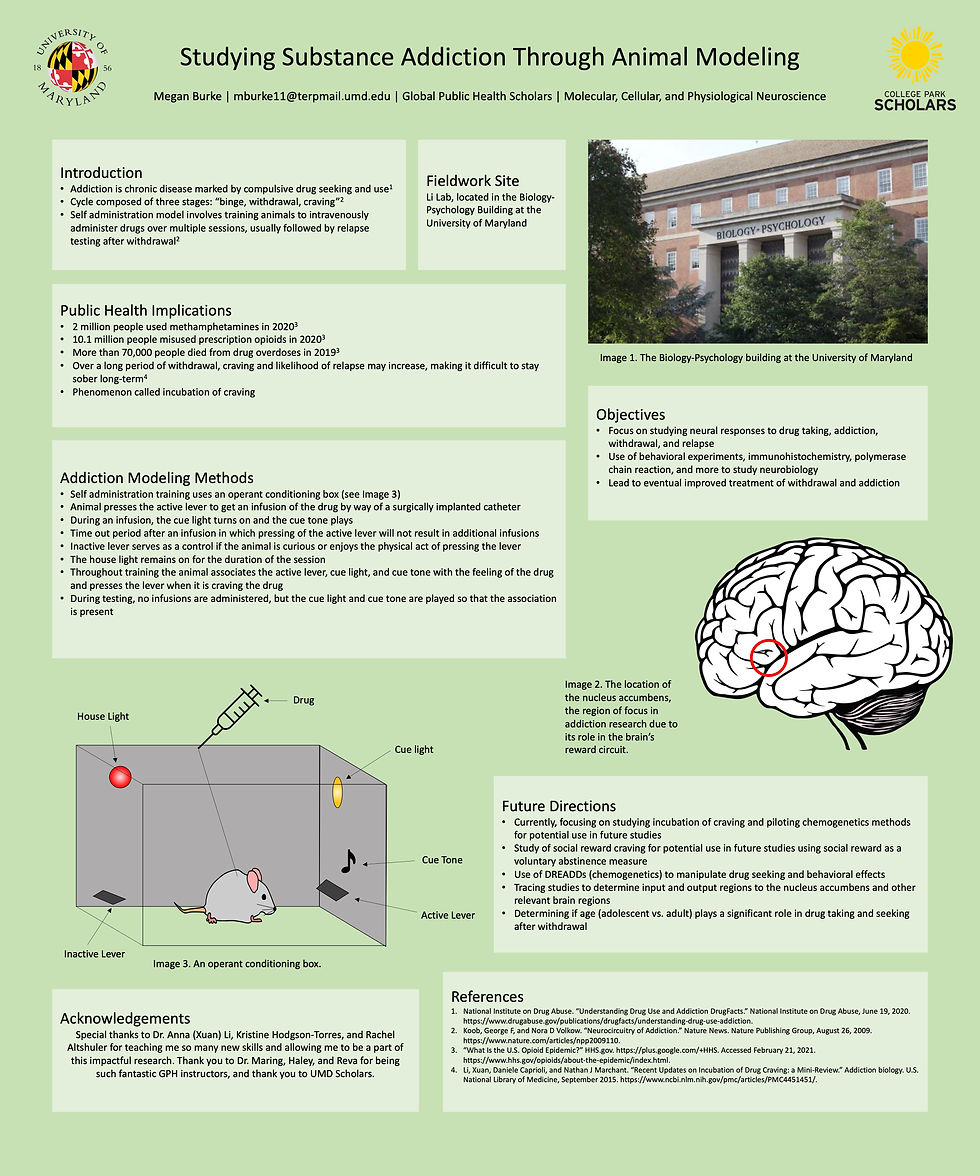Studying Substance Addiction Through Animal Modeling
- Apr 23, 2021
- 1 min read
Presenter: Megan Burke, Molecular, Cellular and Physiological Neuroscience, Global Public Health Scholars

For my practicum I worked in the Li Lab in the Psychology Department here at the University of Maryland. The Li Lab’s work focuses on studying neural responses to drug taking, addiction, withdrawal, and relapse, in an effort to eventually create better treatments for drug addiction. I am responsible for helping to care for the animals, assist with running programs to train them to self-administer the drug, assist with testing for relapse, and review literature to help determine new directions for our research. After euthanasia, I often prepare slides with brain tissue in order to allow for imaging and molecular processing. During this, we use scientific methods such as polymerase chain reaction (PCR), which allows us to see which genes are expressed in certain brain regions. By understanding different genes’ roles in addiction, this can help us better tailor future studies to manipulate these genes. Overall, this has a strong public health application, as drug addiction has been an issue for many communities for a long time, and can have an impact on physical and mental health.
Hi Megan, I found your presentation really interesting, especially given the current state of the world. In your presentation, you stated that social interactions with other people can help mitigate addiction. Due to the COVID-19 pandemic, many people have isolated themselves according to quarantine practices, so what solution can you propose to help those suffering from addiction in quarantine?
Hey Megan! I think your research is very interesting and I liked how you included future directions for your research! Do you think you'll continue with this lab and keep contributing to those future efforts?
Hi Megan. Your research seems really interesting. I also found the idea of having mice associate the cue light and tone to the drug injection was clever. How do you want to use this information in the future?